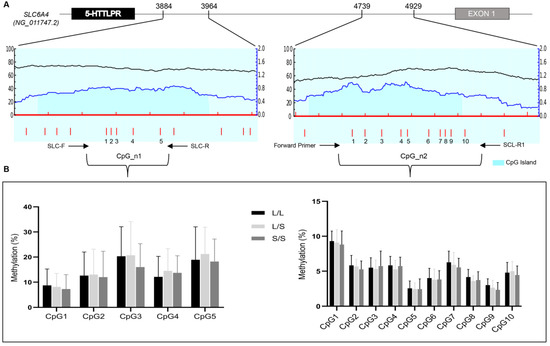How will you use this association to get survivors recovered? Create protocols that deliver the corrects amounts of SLC6A4
and 5HTTLPR to the brain? Or DO NOTHING BECAUSE THERE IS NO STROKE LEADERSHIP?
Association Study of SLC6A4 (5-HTTLPR) Polymorphism and Its Promoter Methylation with Rehabilitation Outcome in Patients with Subacute Stroke
IRCCS Fondazione Don Carlo Gnocchi ONLUS, 50143 Florence, Italy
*
Author to whom correspondence should be addressed.
Academic Editor: Tiziana Angrisano
Genes 2021, 12(4), 579; https://doi.org/10.3390/genes12040579
Received: 1 March 2021 / Revised: 9 April 2021 / Accepted: 13 April 2021 / Published: 16 April 2021
(This article belongs to the Special Issue Deciphering Epigenetic Signature in Human Health and Disease)
Recently it has been suggested that serotonin transporter (SLC6A4)
and its 5HTTLPR polymorphism could be involved in post stroke recovery.
Here, we characterized the methylation profile of two different CpG
islands within the SLC6A4 promoter
region in the whole blood of 50 patients with subacute stroke before and
after a six-week rehabilitation treatment. These patients were
genotyped for 5HTTLPR polymorphism identifying patients on the basis of
short (S) and L (L) alleles: 17 patients LL, 22 patients LS and 11
patients SS. At baseline, all CpG sites for both CpG islands displayed a
heterogeneous methylation percentage that were not influenced by the
different genotypes. After rehabilitation, we found a significant
variation in the methylation levels (increase/decrease) in the specific
CpG sites of both CpG islands. The statistical analysis showed a
significant relationship between the LL, LS and SS alleles and the
outcome of the rehabilitation intervention (χ2 (2,50) = 6.395, p
= 0.041). Specifically, we found a significant difference between
patients with or without a favorable outcome in the LL (11.1% with a
favorable outcome) and in the SS (54.4% with a favorable outcome)
groups. Our data suggest that 5-HTTLPR polymorphisms and SLC6A4
promoter methylation may be employed as a non-invasive biological
marker of recovery in patients with stroke undergoing rehabilitation.
View Full-Text
Keywords:
SLC6A4; 5-HTTLPR polymorphism; methylation; stroke; rehabilitation
▼
Show Figures
This is an open access article distributed under the Creative Commons Attribution License which permits unrestricted use, distribution, and reproduction in any medium, provided the original work is properly cited






No comments:
Post a Comment